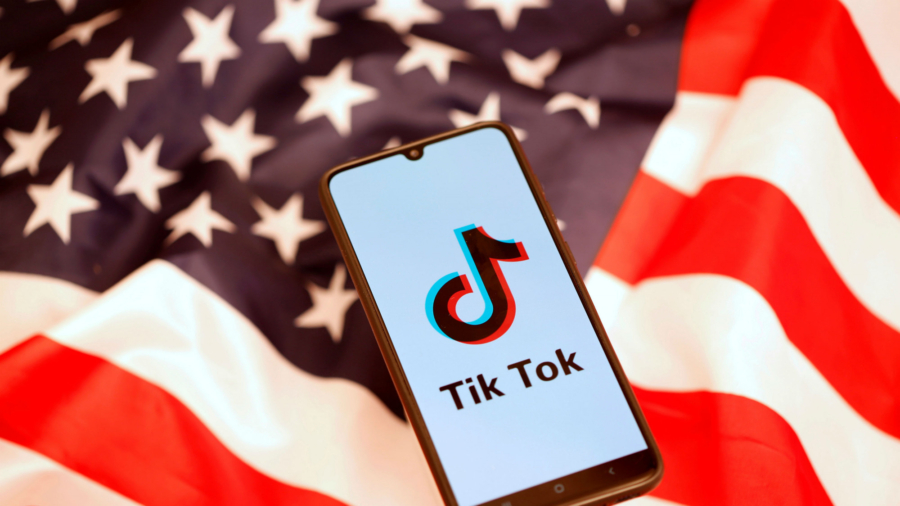The U.S. military has banned its soldiers from using the Chinese video-sharing app TikTok on government-issued phones, as the company’s relations with the Chinese regime came under growing scrutiny.
It started with a Cyber Awareness Message on Dec. 16, when the Army advised military officers against using the app over potential security risks, according to Lt. Col. Robin Ochoa.
The message requested those with a government phone to remove the app, and included guidelines for employees on how to protect their personal information.
“The guidance is to be wary of applications you download, monitor your phones for unusual and unsolicited texts etc., and delete them immediately and uninstall TikTok to circumvent any exposure of personal information,” the Pentagon spokesperson told The Epoch Times.
Although the soldiers can still use the app on their personal devices, Ochoa said they have asked anyone doing so to “use caution and be vigilant when posting personal information.”
The short-form video app has grown popular among U.S. teenagers. The app boasts about 26.5 million monthly active users in the United States, 60 percent of whom are aged between 16 and 24.
The Navy banned the app on government devices last month. Lt. Col. Uriah Orland, a defense spokesperson, told Reuters at the time that the decision was part of an effort to “address existing and emerging threats.”
National Security Concerns
The Committee on Foreign Investment in the United States (CFIUS) recently opened a national security review of TikTok’s parent company ByteDance over its $1 billion acquisition of Shanghai-headquartered social media app Musical.ly (later merged with TikTok), according to Reuters.
Multiple senators have raised alarms over the app in recent weeks, owing to its censorship of politically sensitive content and data privacy concerns.
In November, Senate Minority Leader Chuck Schumer (D-N.Y.) expressed concern to U.S. Army Secretary Ryan McCarthy about the Army’s plans to use TikTok to recruit new members.
“While I recognize that the Army must adapt its recruiting techniques in order to attract young Americans to serve, I urge you to assess the potential national security risks posed by China-owned technology companies before choosing to utilize certain platforms,” he wrote in a letter.
In an October letter to acting Director of National Intelligence Joseph Maguire, Schumer and Sen. Tom Cotton (R-Ark.) asked the agency to probe into the national security risks of TikTok given its China-ties and growing use in the country.

Despite ByteDance’s claims that TikTok doesn’t operate in China and that it doesn’t store U.S. user data on Chinese servers, the senators noted that the company “is still required to adhere to the laws of China.”
China’s national intelligence law requires all organizations and individuals to “support, assist, and cooperate with national intelligence efforts.”
China also recently implemented a new encryption law, effective Jan. 1, to regulate cryptography. Critics have warned that the law would allow Chinese authorities to assume further control over the online data of foreign companies.
Sen. Josh Hawley (R-Mo.) recently introduced a security bill to cut off the flow of sensitive U.S. data to China in the wake of a hearing that called to attention TikTok’s ties with the Chinese Communist Party (CCP).
‘Vector for Censorship’
TikTok ran into controversy in December for suspending the account of a U.S. teenager after she posted videos shedding light on the Chinese regime’s suppression of Uyghurs and other Muslim and ethnic minorities in China’s Xinjiang region.
The company also faced a lawsuit from a California college student over alleged transfer of private user data. Misty Hong, who filed the complaint, said that TikTok had created an account under her name without her consent, and collected private information including her biometric data from videos she never posted.
In February, TikTok agreed to pay a $5.7 million fine to settle a Federal Trade Commission complaint that it collected personal information from users under 13, which would constitute a violation of federal law.
The Australian Strategic Policy Institute, a Canberra-based think tank, warned in a Nov. 28 report that many Chinese tech firms are not “politically neutral actors.”
The report found ByteDance to be closely collaborating with the Chinese public security apparatus across China “as a vector for censorship and surveillance,” and has played an active role in disseminating the CCP’s narratives on Xinjiang.
Tiktok also instructed its moderators to censor videos mentioning sensitive subjects related to Tiananmen Square, Tibet, and the persecuted spiritual discipline Falun Gong, The Guardian reported, citing leaked documents.
“Beijing has demonstrated a propensity for controlling and shaping overseas Chinese-language media,” the report stated. “The meteoric growth of TikTok now puts the CCP in a position where it can attempt to do the same on a largely non-Chinese speaking platform—with the help of an advanced AI-powered algorithm.”
From The Epoch Times


